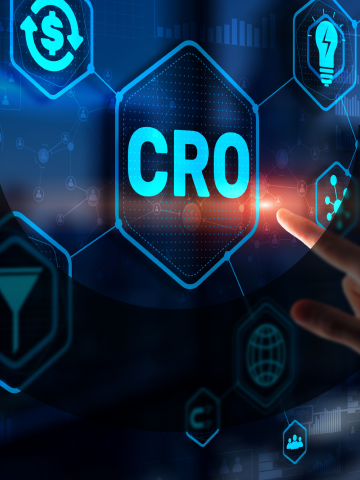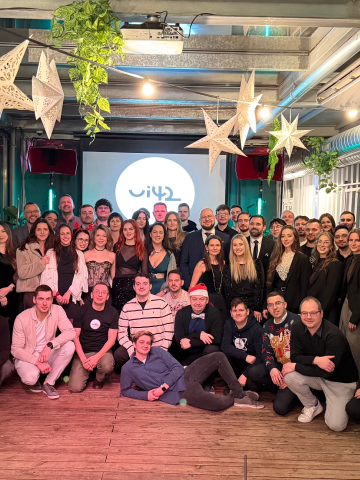Zero-Click search
What does it mean
Zero-click search occurs when a user enters a query into a search engine or AI tool and receives an immediate and comprehensive answer directly in the search interface, without having to click on an external website. AI-powered platforms, such as ChatGPT and Google AI Overviews, now provide answers directly in the search interface, instantly satisfying user queries.
This phenomenon means that while website content may be discovered and summarized by AI, it does not necessarily translate into direct website traffic. The fundamental tension lies in the fact that "visibility does not always equal traffic".
More info
Why is Zero-click Search Important?
The rise of zero-click search presents both challenges and unprecedented opportunities for website owners and digital marketers. As AI Overviews appear at the top of search results, they often push organic listings down by more than 140%1.
Studies suggest a potential drop in organic traffic by 20-60% 1 for some publishers , as users increasingly receive instant answers without clicking through. The dramatic impact on organic traffic represents a key economic consequence. If the number of clicks decreases, content creators must find new ways to derive value.
Citation by AI Tools: The New Currency of Visibility
Instead of traditional clicks, the metric of success shifts to citation. Citation means that a brand appears in trusted AI responses , shifting the metric of success from clicks to brand mentions and direct inclusion in AI-generated conversations. The shift to "citation" indicates that brand recognition and direct impact on user decisions within the AI interface are becoming the new currency. This requires rethinking content monetization strategies beyond traditional ad revenue from traffic.
How to Adapt to the Era of Zero-click Search and GEO?
Traditional SEO remains foundational for visibility in AI. AI models heavily rely on existing trust and authority signals, many of which are built through strong traditional SEO practices. Without this foundation, efforts for GEO (Generative Search Optimization) are significantly limited. If the primary goal of AI is to provide an answer directly, then the content strategy must focus on making the website the definitive source of answers.
Here are key strategies to optimize your content:
1. Prioritize E-E-A-T (Experience, Expertise, Authority, Trustworthiness): AI models prefer content from trusted and authoritative sources. Publish content that results from expert knowledge and thorough research. Include detailed author biographies and cite reputable external sources.
2. Clarity, Conciseness, and Direct Answers: AI tools prefer clear and easily understandable content. Provide short, scannable answers, ideally in the first 1-2 lines or the first paragraph of the content. Write with clarity and intent, prioritizing simple language over industry jargon. Eliminate unnecessary "filler" and long introductions.
3. Structured Content and Formatting: AI models prefer well-structured content that is easy to interpret and summarize. Use proper hierarchical heading tags (H1, H2, H3, etc.). Break text into short paragraphs and frequently use bullet points and numbered lists. Include dedicated FAQ sections. Content should function as a miniature knowledge graph.
4. Semantic Keywords: AI prefers semantic understanding and context over exact keyword matches. Focus on creating content that thoroughly addresses user intent. Targeting ultra-long keywords (phrases with 7+ words) in the form of specific questions or instructions is effective, as they mimic the way users interact with chatbots.
5. Utilize Schema Markup and Structured Data: Schema markup helps search engines and AI systems understand website content. It allows AI to extract relevant answers faster and more accurately. Use relevant schema types such as Organization, Product, FAQPage, Article and HowTo.
6. Technical Optimization: Ensure your website is publicly accessible and indexable for AI bots (via robots.txt and potentially emerging llms.txt). Maintain high page load speed and mobile optimization, as AI systems have limited time to retrieve content. Adhere to Web Content Accessibility Guidelines (WCAG) that improve machine readability.
7. Monitor New Metrics: Shift from focusing solely on clicks to tracking brand mentions in AI summaries and visibility in conversational results. Monitor referral traffic from chatbots in tools like Google Analytics 4.
Zero-click search is a manifestation of a profound change in user behavior and search engine functioning. Rather than a revolution, it is more of an evolution, where traditional SEO remains a key foundation but must be complemented by specific GEO strategies. By understanding this shift and proactively optimizing content for AI tools, you can ensure that your content is not only found but also credibly cited in the ever-evolving digital environment.
Latest news
Contact us
Don't miss out on the latest news from the world of UX, programming, analytics, and marketing.











